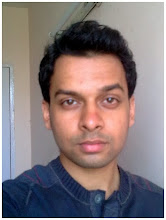How is education a purposeful ethical activity? Compare the system of education in ancient India with the current system. Has it changed? Give reasons for your answer.
Education is a purposeful ethical activity because it broadens choice in terms of how one should live. Education opens doors to an individual. It allows opportunity and the ability to make informed decisions about ethical conduct in one's life. All studies of ethical principles and policies start with the base of education. I am not aware of any ethical code of conduct that does not incorporate education into its framework. I would say that for this reason alone, education is a purposeful ethical activity. The second issue is much more dicey. I think that education in India has undergone change over time. The idea of "ancient" is one that has to be explained more clearly. That is to say that ancient India lived by the stringent following of the caste system in terms of education and other opportunities. Over time, this is something that is still there, but not to the extent it was. I think that the more appropriate question might be will India's educational system change in the modern setting? The traditional method of instruction in India which is based so much on large class instruction, generalized teaching methodology, and an overreliance on high stakes standardized assessment is going to be challenged as globalization makes its way into Indian educational circles. How will Indian education reflect differentiated instruction, student autonomy, and a greater stake in the process of learning? All three of these elements are critical for meeting the demands of a 21st Century work setting and the classroom has to reflect such a paradigm. I think that this is where Indian education is right now. Along those lines, the question of whether Indian education will be democratized further to ensure that all children born in India have a right to a public education that is provided for them is going to play a larger role in Indian educational affairs. As India becomes a more prominent member of the global community, it will realize that it does itself no favors when only a select few of its citizens are competitive and that it will feature greater competitiveness when all children are able to choose for themselves a path which includes educational opportunities.

Comments
Post a Comment